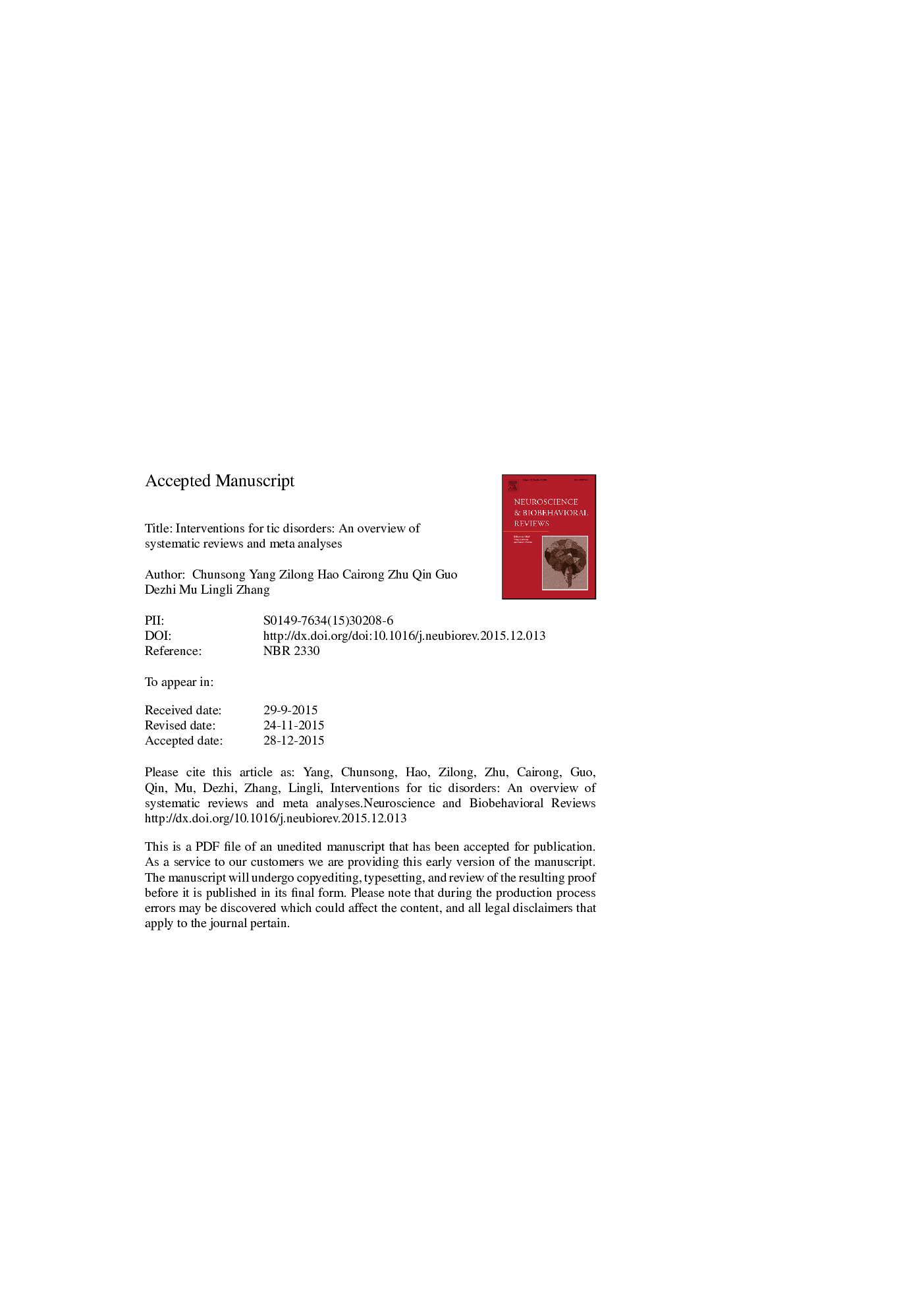| Article ID | Journal | Published Year | Pages | File Type |
|---|---|---|---|---|
| 7303046 | Neuroscience & Biobehavioral Reviews | 2016 | 60 Pages |
Abstract
We conducted a comprehensive search and the overview included 22 systematic reviews (SRs) for treating tic disorders (TDs). Three SRs indicated typical antipsychotics (i.e., haloperidol, pimozide) were efficacious in the reduction of tic severity compared with placebo but with poor tolerability. Six SRs assessed the efficacy of atypical antipsychotics and indicated that atypical antipsychotics (i.e., risperidone, aripiprazole) could significantly improved tic symptoms compared with placebo or typical antipsychotics with less AEs. Four SRs indicated alpha adrenergic agonists (i.e., clonidine, guanfacine) could improve tic symptoms. Two SRs assessed the efficacy of antiepileptic drugs and indicated topiramate was a promising therapy. Six SRs evaluated the efficacy of behavior therapy and showed habit reversal therapy (HRT) and exposure and response prevention (ERP) were effective. One SR evaluated the efficacy deep brain stimulation (DBS) and indicated DBS is a promising treatment option for severe cases of TS. In conclusion, RCTs directly comparing different pharmacological treatment options are scarce. In practice, typical and atypical antipsychotics are often considered firstly while other pharmacological medications are suggested as alternatives in the case of treatment failure or contradictory outcomes. Behavioral therapies can be used either alone or in combination with medication.
Related Topics
Life Sciences
Neuroscience
Behavioral Neuroscience
Authors
Chunsong Yang, Zilong Hao, Cairong Zhu, Qin Guo, Dezhi Mu, Lingli Zhang,
